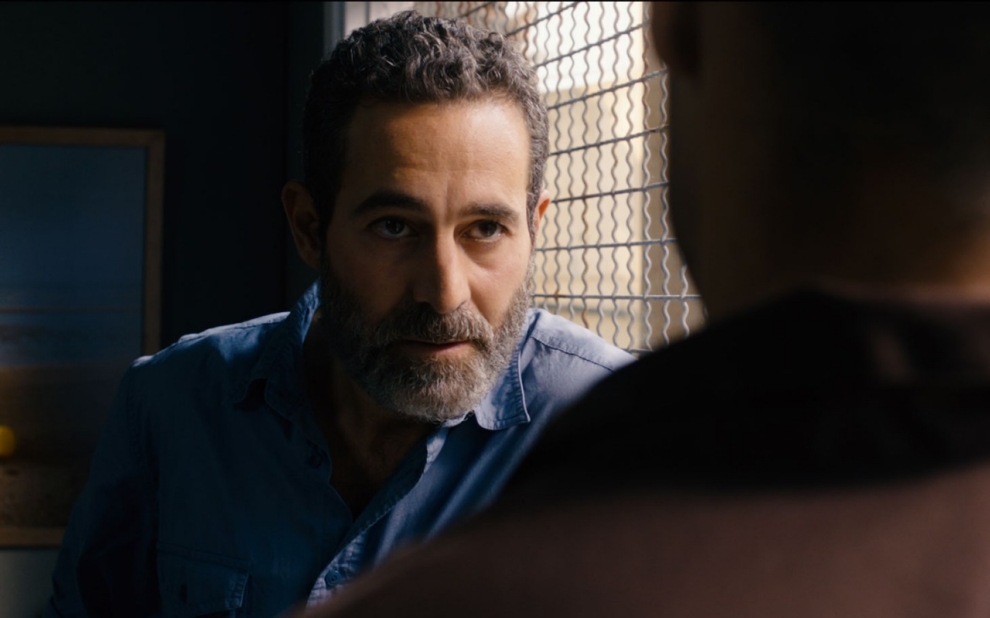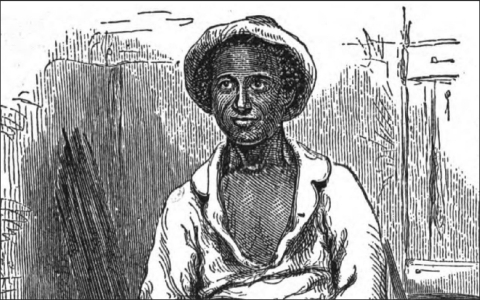
The film "Omar," a thriller and love story by director Hany Abu-Assad, is only the third Palestinian film to be nominated for an Academy Award — the second for best picture in a foreign language — but what's just as notable is that its nomination listed "Palestine" as the country of origin, a detail that attests to the struggles of a maturing film industry under military occupation.
"Omar" looks at the layers of betrayal among best friends, lovers and a Palestinian prisoner with an Israeli agent hoping to turn him into an informant. Abu-Assad's earlier film "Paradise Now" was the first Palestinian feature film nominated for an Oscar, in 2006.
Both films directly address occupation as a theme — a reflection of not only the struggles of everyday life for Palestinians but also the struggle to make art in such handicapped circumstances.
"When you are under occupation, it is dominating your life whether you like it or not," Abu-Assad told Al Jazeera. "It’s part of your life. If you want to make a film in Palestine, you can't avoid the occupation."
"Paradise Now" focused on the internal struggle of two Palestinian men from the West Bank wanting to carry out suicide attacks on Israel. And "Omar" focuses on the fear among close friends and lovers of collaborators spying for Israel.
"If you just make entertainment and have no connection to the subject you are making, it's not an artwork — it's more of an entertainment business work," Abu-Assad said. "I consider myself an artist, and I have to think about the connection between myself and the subject and what's happening. And one of the main subjects in my life is how to become independent and free and equal."

"Omar" starts with the main character putting his life on the line by climbing over the separation wall between Nablus in the West Bank and Palestinian neighborhoods in Israel to see the love of his life, Nadia. The same challenges of getting in and around the West Bank and Gaza Strip also limit production of films.
"The issue is getting permits and moving freely across the country. If you want to go and film in Jaffa, maybe you can't because (Israeli authorities) do not allow you because you're not from there," Emile Andre, an actor at the Ashtar Theatre in Ramallah, told Al Jazeera. "Or even if you wanted to film in Jerusalem, you can't because of a checkpoint or some kind of security threat they say you might raise."
Andre added that the struggling arts industry goes beyond film as aspiring actors look for opportunities in other countries. Because checkpoints and separation walls make traveling difficult even within the West Bank, theaters and cinemas lack access to populations outside major cities.
"Omar" overcame those challenges, and the Academy Awards took notice. Waleed Zuaiter, who plays the Israeli agent in "Omar," said he believes "the Oscars are probably the most authentic and fair in terms of their assessment of films."
But if his assessment is correct, why have Palestinian films been nominated only in the last few years?
Films from the Palestinian territories — without defined borders and under Israeli occupation — have stirred controversy at the Academy Awards for more than a decade.
"Divine Intervention," by Palestinian director Elia Suleiman, was filmed in Israel and France but was reportedly not considered by Oscar's foreign language film selection committee because Palestine has yet to exist as a sovereign state.
Motion Picture Academy executive director Bruce Davis told "Divine Intervention" co-producer Humbert Balsan that the film was not eligible for consideration in the 2003 foreign language film category because the Palestinian territories were not formally recognized by the United Nations, ABC News reported. In the past, the Academy Awards had considered entries from places like Puerto Rico and Hong Kong, which are also not recognized as nations by the United Nations. The Palestinian territories have had U.N. observer status as an "entity" since 1974 and is recognized by more than 100 nations.
Years later, the selection committee made an exception for Palestinian films, with the selection of "Paradise Now." However, reportedly caving to Israeli pressure, the Academy Awards refused to label the film as from "Palestine."
Instead, it was labeled from the "Palestinian territories." Abu-Assad's identity brought controversy to the film's submission as Palestinian because, though he identifies as a Palestinian, he holds two passports: Israeli and Belgian. In addition, the film's funding came from European, not Palestinians sponsors.
"5 Broken Cameras," an Oscar-nominated documentary about a Palestinian village's nonviolent struggle against Israeli settlements faced similar controversy in 2013 because it was co-produced and co-directed by an Israeli, Guy Davidi.
"Omar," however, has been able to avoid some of the challenges of its predecessors. In 2012, the U.N. General Assembly overwhelmingly voted to upgrade the Palestinian territories from an observer entity to a nonmember observer state. The Academy Awards followed suit, labeling "Omar" a film from "Palestine."
The $2 million film was funded almost entirely by private Palestinian investors (with some support from Enjazz Fund in the United Arab Emirates), it was directed by a Palestinian citizen of Israel, the actors are Palestinian, and it was filmed in the Palestinian city of Nablus and in Nazareth.

What makes a film Palestinian? For the Oscars' foreign language film category, "the motion picture must be first released in the country submitting it," and "each country shall be invited to submit its best motion picture to the academy," according to Academy of Motion Picture Arts and Sciences rules.
The Palestinian Ministry of Culture, founded less than 20 years ago, is responsible for submitting films on behalf of the territories, and its choice to represent them does not necessarily need to be produced or directed by Palestinians or filmed in the territories.
Helga Tawil-Souri, an associate professor in the media, culture and communication department at New York University, told Al Jazeera that since the Palestinian territories' borders are not concretely defined, attempting to label a film from Palestine is ironic, at best, as most of the world has yet to agree what the country is.
Abu-Assad is an Israeli citizen, yet he defines "Omar" and "Paradise Now" as films from "Palestine." National identity of a film can be vague if it is filmed in one place but funded from another or has producers from still others.
"What the film communicates, even though it takes place in Palestine and it is a very Palestinian problem — like the issues of collaboration, freedom fighting and love across borders or walls — it's precisely about breaking those boundaries and barriers by which we tend to define things like Palestine or any other nations," Tawil-Souri added.
The burden to invest in the arts lies on the limited-capacity Palestinian Authority.
"I think that the government is making a big mistake when it's neglecting art and neglecting culture," Andre said. "There is money, but the government spends it on building restaurants and cafes and making Ramallah a very inviting place where you can stay all night at a bar.”
But executive producer Abbas "Eddy" Zuaiter, who along with his brother Ahmad provided most of the film's funding, believes there is "very little infrastructure to support anything, including the arts and film."
"I wouldn't say that they're purposely neglected. There are many matters that need attention. There are a lot of people that are hungry and need water and need food, so (culture) doesn't always get its appropriate share of the allocation," he said.
If successful, "Omar" could inject energy into the Palestinian film industry. Zuaiter has promised to reinvest any profits he makes from the film back into other feature film projects.
Zuaiter wants consistent investment and reinvestments to build a "center where any Palestinian director, screenplay writer, author can go and make a pitch and say, 'I have a movie. I want it produced,'" with a committee commissioned to fund feature films.
"You're not going to create a Hollywood or Bollywood if all you do is not for profit," Zuaiter said. "A thriving private sector will create incentives for people to invest."
"Omar" opens in the United States on Feb. 21.
2014 ACADEMY AWARDS

Jehane Noujaim’s Oscar-nominated documentary revels in an idealistic portrait of the 2011 Egyptian uprising, but its sympathies for secular activists eclipses a more complicated truth.

What a Civil War soldier’s diary tells us about Solomon Northup’s ordeal

Box-office winners that get Oscar nods can get failing grades when it comes to intelligent roles for women

'Cutie and the Boxer,' an Oscar-nominated documentary feature, looks at the art careers and marriage of Ushio and Noriko Shinohara






Error
Sorry, your comment was not saved due to a technical problem. Please try again later or using a different browser.